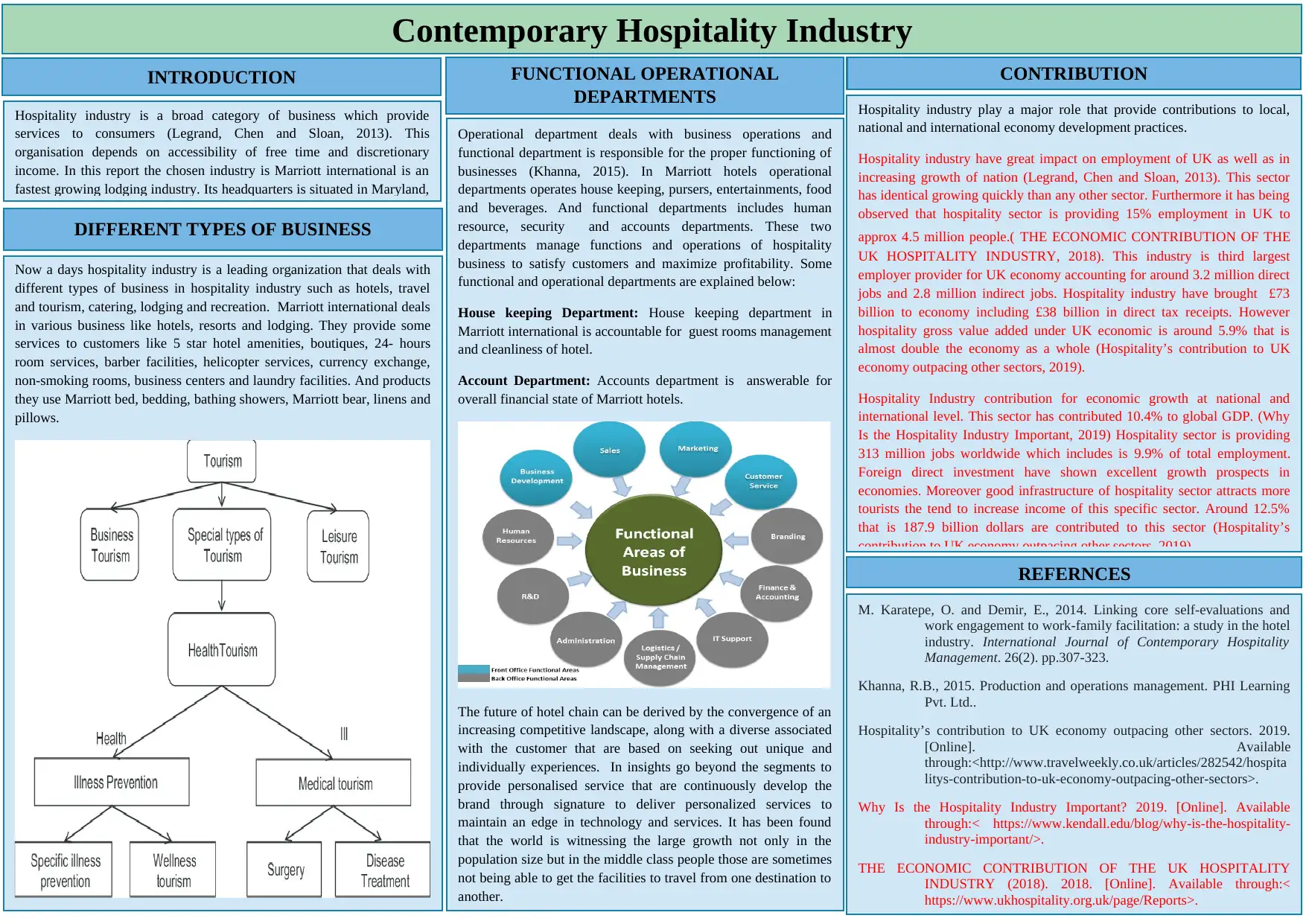Contemporary Hospitality Industry: Economic Contribution and Analysis
VerifiedAdded on 2020/12/29
|1
|1614
|388
Report
AI Summary
This report provides an overview of the contemporary hospitality industry, emphasizing its significant contributions to both local, national, and international economies. It highlights the industry's substantial impact on employment, particularly in the UK, where it is outpacing other sectors in growth. The report examines the diverse business operations within the hospitality sector, using Marriott International as a key example, detailing its services, products, and operational and functional departments. It also discusses the industry's global presence, its contribution to GDP, and the increasing importance of foreign direct investment. Furthermore, the report touches upon the future trends, including the convergence of competitive landscapes and the need for personalized services to maintain a competitive edge, especially in catering to the growing middle class and their travel needs.





![[object Object]](/_next/static/media/star-bottom.7253800d.svg)